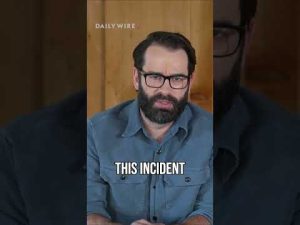In the windy city of Chicago, the concept of peacekeeping could use a reality check. The state has been experimenting with what they call “peacekeepers”—local folks who are supposed to step in and mend community feuds without the intervention of the police. However, recent events are raising eyebrows and perhaps a few chuckles, showing that this approach might not be the best way to foster safety in neighborhoods riddled with violence.
Just recently, the Chicago police encountered a rather unusual situation during a chase involving a man driving a stolen car. After a high-speed thrill where the driver tried to make a run for it, he was apprehended by law enforcement. Enter Chester Alexander, who introduced himself at the scene as a peacekeeper. One might think he’d intervene to ease tensions, but instead, he jumped into the action, quite literally. Rather than calming things down, he allegedly decided to antagonize officers, culminating in a brawl that led to his arrest for aggravated battery against a police officer. And as if that wasn’t enough, police discovered that he was carrying 24 ecstasy pills—a colorful choice for someone claiming to be a peacekeeper.
Interestingly, this was not Chester’s first dance with the law. His history shows a bumpy road, with previous run-ins for armed violence, a deadly weapon, and several other offenses. But Chester isn’t alone in this dubious distinction. Just prior to his antics, another peacekeeper, Callan McMillan, was charged with first-degree murder for a tragic incident involving a smash-and-grab robbery that ended in fatality. McMillan, who had been posing for happy photos alongside Governor Pritzker at a peacekeeper event, apparently had multiple outstanding warrants and a long record of arrests in Chicago. Clearly, Chicago’s peacekeeping initiative might need a new plan—the kind that doesn’t involve previously convicted felons playing the role of neighborhood enforcers.
Supporters of these peacekeeping plans may argue that these individuals are familiar faces in the community. But it seems like the police are often left cleaning up messes created by those who should be calming the storm. In a city grappling with rising crime rates, relying on individuals with questionable backgrounds to patrol the streets is starting to appear less like a clever strategy and more like rolling the dice at a Vegas slot machine—chances of winning are slim, and the odds are stacked against you.
While the initiative is framed as a way to divert reliance from traditional policing methods, one has to wonder if this experiment in community safety is merely giving criminals a badge—one that could ultimately lead to more chaos than calm. After all, the folks directly charged with maintaining peace (the police) continually find themselves in the crosshairs of people like Chester and Callan, who seem to have missed the memo on what being a peacekeeper really entails.
As Chicago’s leaders reflect on the outcomes of this ill-fated peacekeeping program, one thing is clear: community safety may require more than good intentions. It might be time for a more traditional approach—one that prioritizes public safety by keeping true peacekeepers, not troubled individuals, at the forefront of community efforts. If the goal is to foster a safer and more secure Chicago, perhaps they should reconsider who gets to don the title of “peacekeeper.” Because right now, what’s most apparent is that peace is being too conveniently mistaken for pandemonium.







